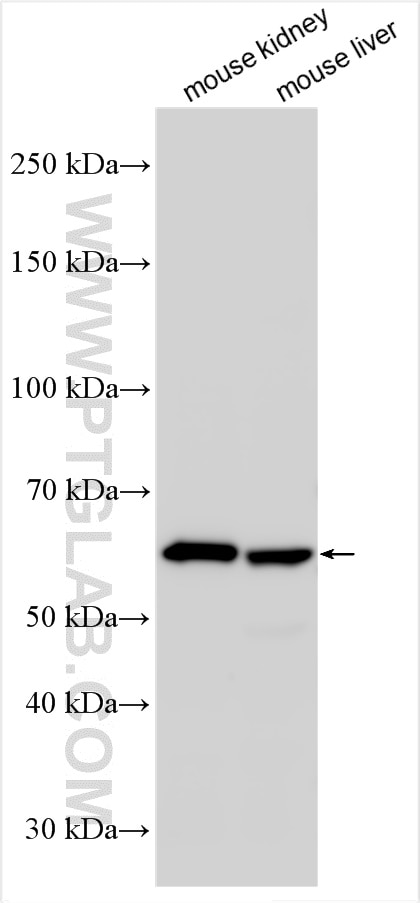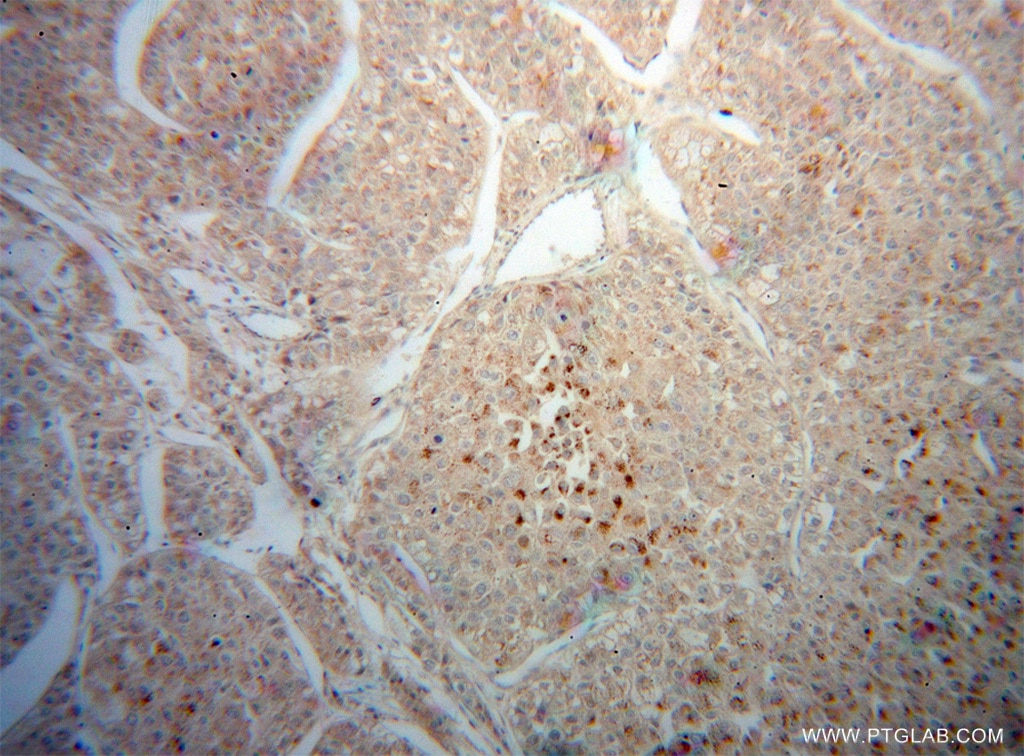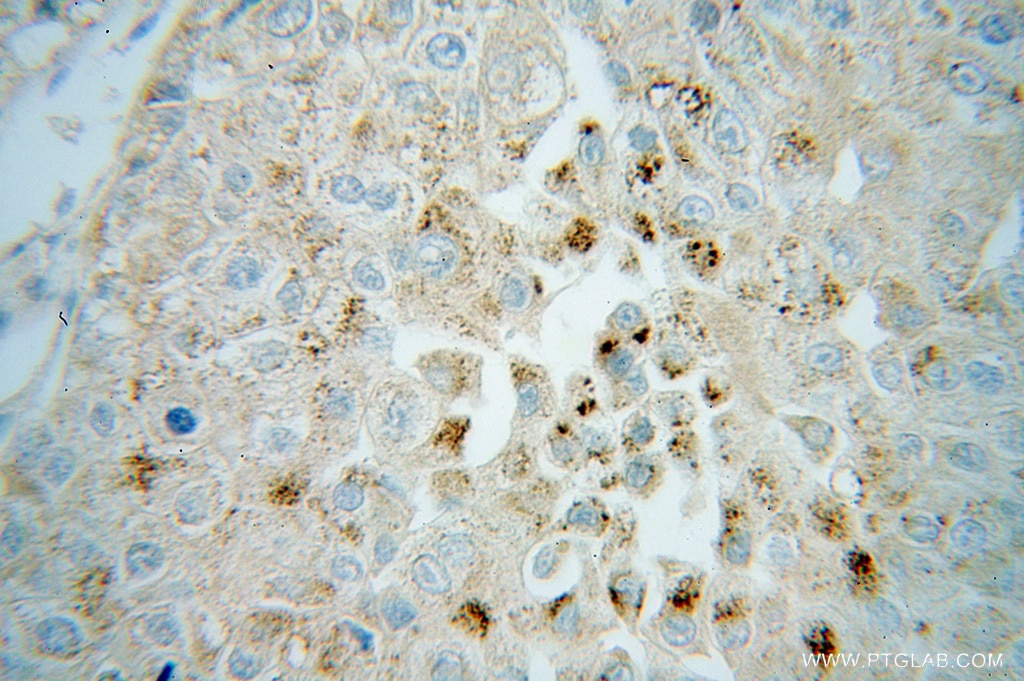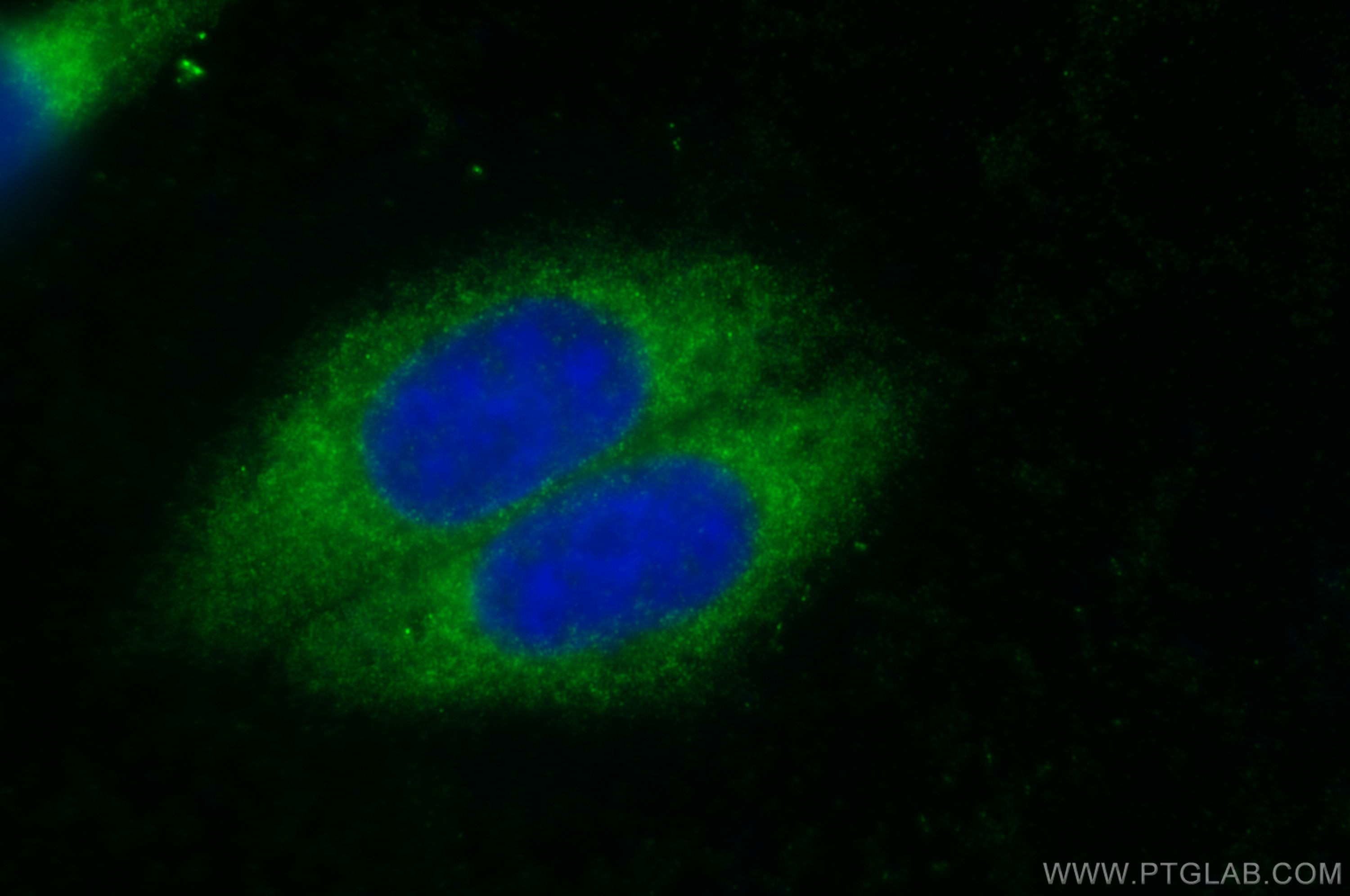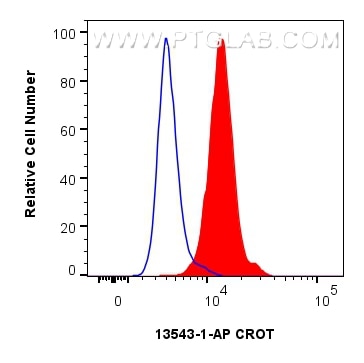Tested Applications
| Positive WB detected in | mouse kidney tissue, mouse liver tissue |
| Positive IHC detected in | human liver cancer tissue Note: suggested antigen retrieval with TE buffer pH 9.0; (*) Alternatively, antigen retrieval may be performed with citrate buffer pH 6.0 |
| Positive IF/ICC detected in | HepG2 cells |
| Positive FC (Intra) detected in | HepG2 cells |
Recommended dilution
| Application | Dilution |
|---|---|
| Western Blot (WB) | WB : 1:5000-1:50000 |
| Immunohistochemistry (IHC) | IHC : 1:20-1:200 |
| Immunofluorescence (IF)/ICC | IF/ICC : 1:200-1:800 |
| Flow Cytometry (FC) (INTRA) | FC (INTRA) : 0.25 ug per 10^6 cells in a 100 µl suspension |
| It is recommended that this reagent should be titrated in each testing system to obtain optimal results. | |
| Sample-dependent, Check data in validation data gallery. | |
Published Applications
| KD/KO | See 3 publications below |
| WB | See 5 publications below |
| IHC | See 1 publications below |
| IF | See 1 publications below |
Product Information
13543-1-AP targets CROT in WB, IHC, IF/ICC, FC (Intra), ELISA applications and shows reactivity with human, mouse samples.
| Tested Reactivity | human, mouse |
| Cited Reactivity | human, mouse |
| Host / Isotype | Rabbit / IgG |
| Class | Polyclonal |
| Type | Antibody |
| Immunogen | CROT fusion protein Ag4486 Predict reactive species |
| Full Name | carnitine O-octanoyltransferase |
| Calculated Molecular Weight | 612 aa, 66 kDa |
| Observed Molecular Weight | 65-70 kDa |
| GenBank Accession Number | BC039004 |
| Gene Symbol | CROT |
| Gene ID (NCBI) | 54677 |
| RRID | AB_2085513 |
| Conjugate | Unconjugated |
| Form | Liquid |
| Purification Method | Antigen affinity purification |
| UNIPROT ID | Q9UKG9 |
| Storage Buffer | PBS with 0.02% sodium azide and 50% glycerol , pH 7.3 |
| Storage Conditions | Store at -20°C. Stable for one year after shipment. Aliquoting is unnecessary for -20oC storage. 20ul sizes contain 0.1% BSA. |
Background Information
CROT, also named as COT, belongs to the carnitine/choline acetyltransferase family. It is a beta-oxidation of fatty acids. The highest activity concerns the C6 to C10 chain length substrate. CROT converts the end product of pristanic acid beta oxidation, 4,8-dimethylnonanoyl-CoA, to its corresponding carnitine ester. Carnitine palmitoyltransferase (CPT) deficiencies are common disorders of mitochondrial fatty acid oxidation. The CPT system is made up of two separate proteins located in the outer (CPT1) and inner (CPT2) mitochondrial membranes. CROT is an active forms for carnitine octanoyltransferase. This antibody can bind the close sequences genes.
Protocols
| Product Specific Protocols | |
|---|---|
| WB protocol for CROT antibody 13543-1-AP | Download protocol |
| IHC protocol for CROT antibody 13543-1-AP | Download protocol |
| IF protocol for CROT antibody 13543-1-AP | Download protocol |
| FC protocol for CROT antibody 13543-1-AP | Download protocol |
| Standard Protocols | |
|---|---|
| Click here to view our Standard Protocols |
Publications
| Species | Application | Title |
|---|---|---|
Front Endocrinol (Lausanne) The miR-33a-5p/CROT axis mediates ovarian cancer cell behaviors and chemoresistance via the regulation of the TGF-β signal pathway
| ||
J Biol Chem Carnitine octanoyltransferase is important for the assimilation of exogenous acetyl-L-carnitine into acetyl-CoA in mammalian cells
| ||
J Biol Chem Carnitine o-octanoyltransferase is a p53 target that promotes oxidative metabolism and cell survival following nutrient starvation
| ||
Am J Transl Res Artemether regulates liver glycogen and lipid utilization through mitochondrial pyruvate oxidation in db/db mice | ||
